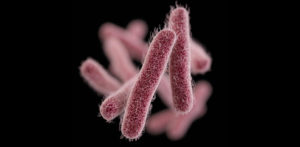 The San Diego County Health and Human Services Agency is advising gay and bisexual men, homeless individuals, and people with compromised immune systems that they could be at an increased risk for the intestinal disease shigellosis.
The San Diego County Health and Human Services Agency is advising gay and bisexual men, homeless individuals, and people with compromised immune systems that they could be at an increased risk for the intestinal disease shigellosis.
According to the Centers for Disease Control and Prevention, young children and travelers to developing countries are also at risk for shigellosis.
Last year, the County saw the highest number of cases in 20 years, including a disproportional increase in the gay and bisexual community and among the homeless population.
The number of cases typically increases in the late summer and fall and there have already been 98 cases of shigellosis reported in the county so far in 2018. In 2017, a total of 334 cases were reported, representing a 37 percent increase compared to 2016 when there were 232 cases.
A larger proportion of 2017 cases (63 percent) were among men, many of whom self-identified as gay or bisexual, compared to previous years. Additionally, the percentage of homelessness cases also experienced an increase from 7 percent of total cases to 12 percent from 2016 to 2017.
So far in 2018, 25 percent of the reported cases involve gay or bisexual men and 7 percent involve homeless people.
The Shigella infection or Shigellosis causes a diarrheal illness lasting for 5 to 7 days. Shigella is very contagious. Infection can occur through person-to-person contact, eating food contaminated by someone who has shigellosis, or swallowing water from pools and ponds or drinking water that was contaminated with the bacteria.
“Shigellosis is a very contagious disease, but there are many steps people can take to reduce their chances of getting it,” said Wilma Wooten, M.D., M.P.H., County public health officer. “The infection can be prevented by conducting frequent and thorough hand washing; disinfecting any areas that may be contaminated, such as restrooms or diaper changing areas; avoiding swallowing water from untreated pools and ponds, and not preparing or serving food to others when having diarrhea.”
HHSA is recommending that those at risk, including gay and bisexual men and homeless people:
- Practice good hand hygiene at all times washing your hands with soap and water, especially before eating or preparing food for others or changing diapers
- Avoid swallowing water from ponds, lakes or untreated swimming pools
- Be aware of your HIV status
- Be aware of the local increase in shigellosis, which can be a severe illness, particularly in those with reduced immunity.
- Seek care for diarrheal illness, especially with fever or bloody diarrhea, and be sure that their healthcare provider tests to see if symptoms are caused by Shigella.
- Discuss antibiotic treatment for shigellosis with their doctors to shorten the duration of illness and reduce the risk of infecting others.
- Abstain from sex, for several days after you stop having diarrhea, to prevent spreading the illness to others.